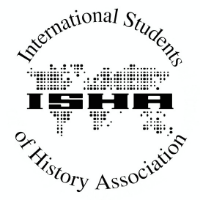This article has multiple issues. Please help improve it or discuss these issues on the talk page . (Learn how and when to remove these messages)
|
 | |
| Abbreviation | ISHA |
|---|---|
| Formation | 1990 |
| Type | International Students' Association |
| Legal status | Association |
| Purpose | Educational / Academic |
| Headquarters | Berlin, Germany |
Region served | Europe |
| Membership | Student Associations / Individuals |
Official language | English |
President | Tomislav Romolić |
Main organ | General Assembly |
| Website | ishainternational |
The International Students of History Association (ISHA) is an international non-governmental organization of students of history. Based and active mainly in Europe, ISHA's goals are to facilitate communication and provide a platform of exchange for students of history and related sciences on an international level. [1] [2] [3]
Contents
ISHA was founded in Budapest in May 1990 thanks to the initiative of Hungarian history students who, after the fall of the Iron Curtain, wanted to forge links with their colleagues in Western Europe. At present, ISHA's members include more than 25 sections in fifteen European countries, and a number of observers and associate members, while ISHA is itself an associate member of the European Students' Union (ESU). [4] Moreover, ISHA closely cooperates with a number of other academic networks, among them the Network of Concerned Historians, [5] the European History Network and EUROCLIO, the European Association of History Educators, [6] [7] and The International Committee of Historical Sciences (ICHS), and the Right to Research Coalition (R2RC). [8]